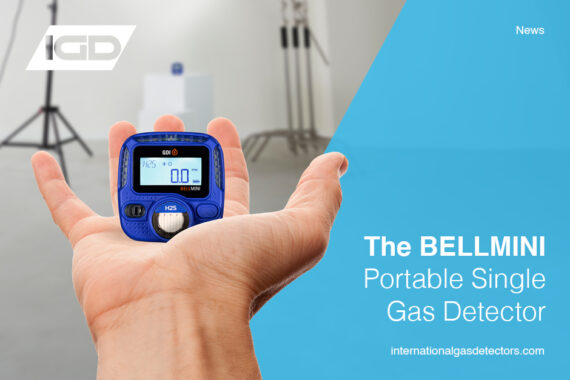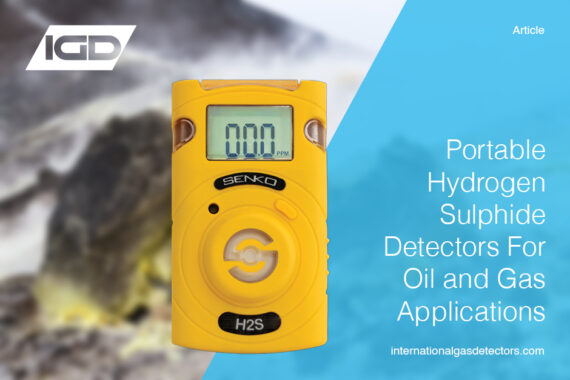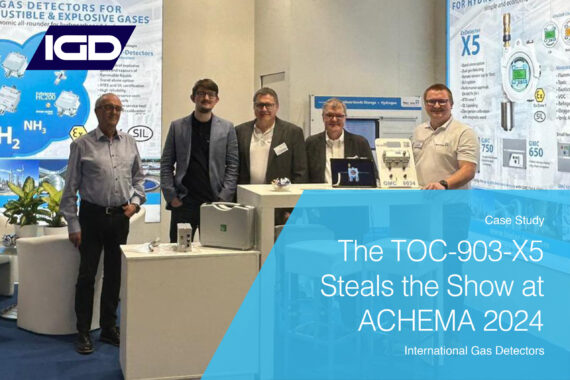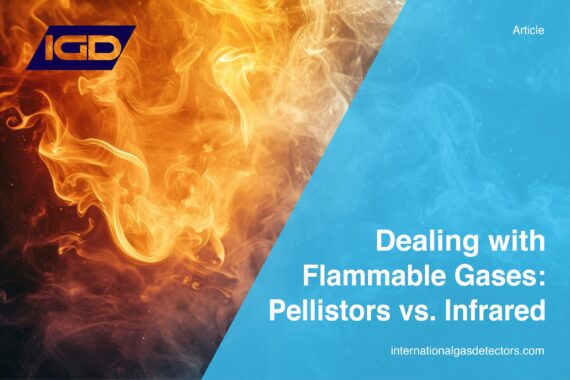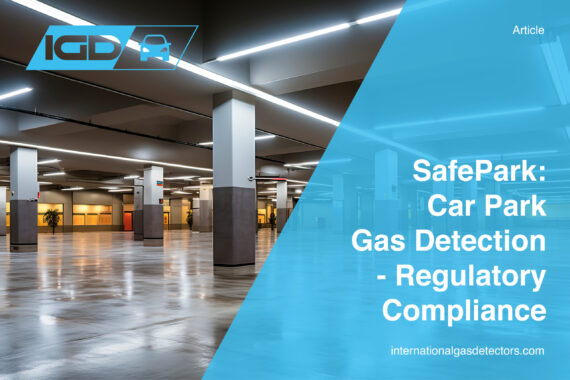Introducing the latest addition to our range of portable solutions: The BELLMINI Portable Single Gas Detector offers advanced MObile App integration and data capture functionality in a pocket-sized package. Available exclusively from IGD.
Portable Hydrogen Sulphide Detectors For Oil and Gas Applications
Hydrogen Sulphide is a colourless, flammable and extremely toxic gas that is frequently found in oil and gas applications. Protect your people by making portable gas detection part of your combined solution with the Senko SGT from IGD.
What is ATEX? Gas Detection for Explosive Atmospheres
Potentially explosive atmospheres present dangers that can only be mitigated with an ATEX-certified gas detection solution. But what is ATEX? What are ATEX zones and how can you guarantee site safety? This is IGD’s complete guide to mitigating explosive atmospheres to keep you and your personnel safe.
The TOC-903-X5 Steals the Show at ACHEMA 2024
IGD and Bieler+Lang were on hand to represent the wider Safe Monitoring group at this years ACHEMA tradeshow in Frankfurt, where Our TOC-903-X5 and 2-WIre Addressable systems were some of the highlights of the weekend.
Why You Are Paying Too Much For Gas Detection
Gas detection can be expensive, but it doesn’t have to be. Read on to find out why not having an IGD 2-Wire Addressable Gas Detection system, probably means that you’re paying too much for your gas detection.
Dealing with Flammable Gases: Pellistors vs. Infrared
There’s a sensor for every application, but choosing the right one will be the deciding factor in the effectiveness of your gas detection setup. Let’s take a look at the pros and cons of tackling flammable gases with either Pellistor or Infrared sensors.
SafePark: Car Park Gas Detection System – Regulatory Compliance
The regulations surrounding car park gas detection can be complex. Fortunately IGD’s SafePark system is designed to ensure that your car park is fully compliant with all relevant standards.
Why You Need Gas Detection: The Legal Requirements
You need gas detection to ensure that your application adheres to all legal regulations, but understanding those regulations, how they work and how they effect you, can be difficult. this is our guide to the legal requirements for gas detection.
How Flammable Gas Detectors Enhance Electrolyser Scalability
Flammable gas detectors can be used with electrolysers to improve safety and avoid gas leaks. Learn more about International Gas Detectors’ range sensors here!
Why You Want to Have a Benzene Gas Detector
A leak of Benzene can happen in a large number of industries. Due to the carcinogenic, volatile nature of this gas, it is important to monitor this wherever it is likely to be present. Are you sufficiently protecting your team from Benzene? Check out our article to find out.

